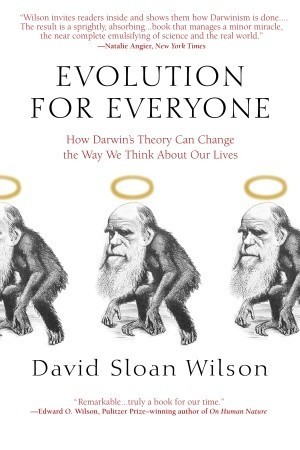What do you think?
Rate this book


400 pages, Paperback
First published January 1, 2007

"...Years of training are not required. A single course is sufficient to get my students started, and this book was written to provide the same service at a distance. The club is not restricted to elites..."
"Evolution and religion can no longer occupy opposite corners of human thought. Evolutionists must include religion as part of what it means to be human, and when religious believers describe their groups as like bodies and beehives, they have nothing to fear from science..."